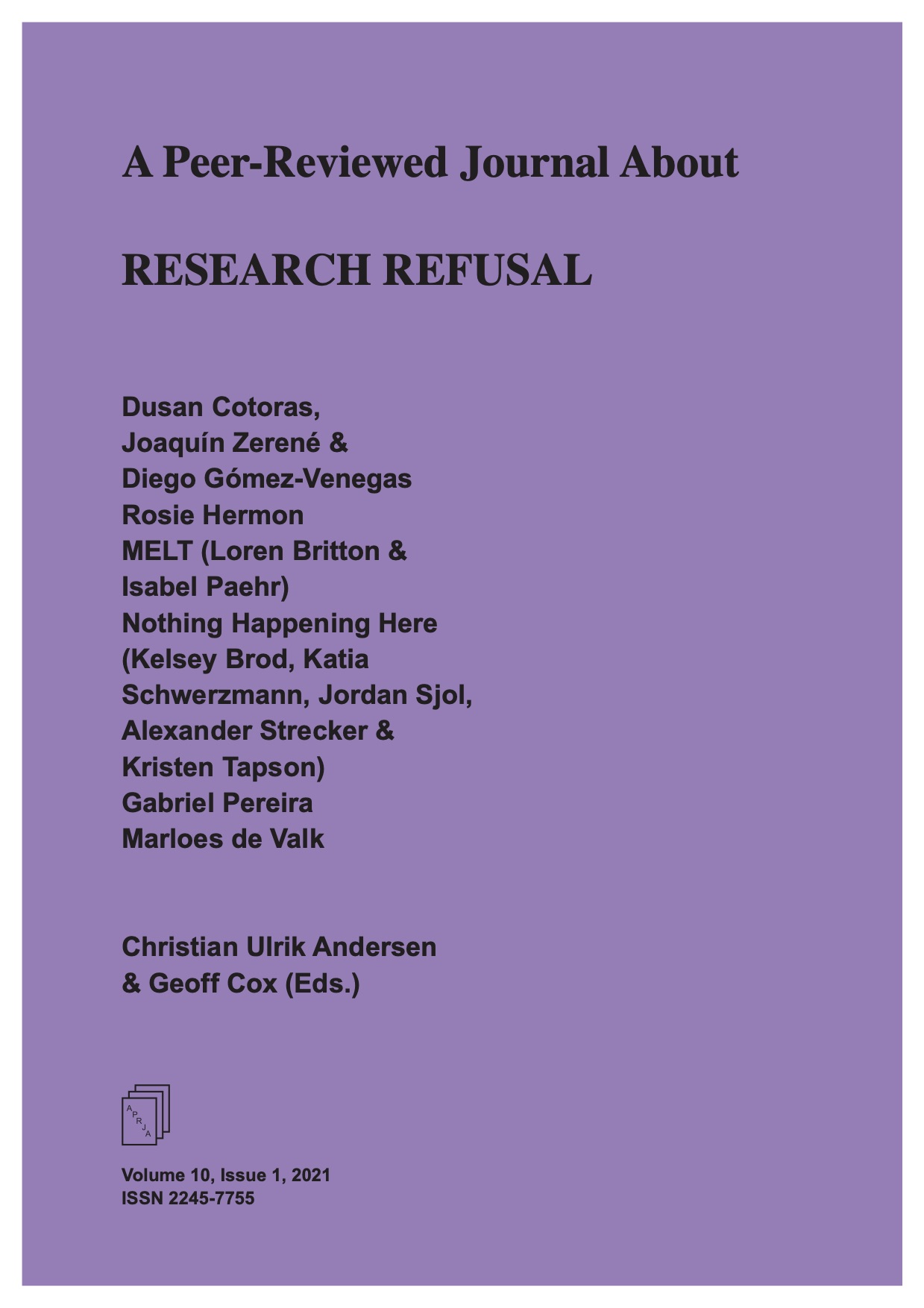Towards Refusing as a Critical Technical Practice: Struggling With Hegemonic Computer Vision
DOI:
https://doi.org/10.7146/aprja.v10i1.128185Keywords:
algorithm, computer vision, critical technical practice, refusal, common sense, hegemonyAbstract
Computer Vision (CV) algorithms are overwhelmingly presented as efficient, impartial, and desirable further developments of datafication and automation. In reality, hegemonic CV is a particular way of seeing that operates under the goal of identifying and naming, classifying and quantifying, and generally organizing the visual world to support surveillance, be it military or commercial. This paradigm of Computer Vision forms a ‘common sense’ that is difficult to break from, and thus requires radical forms of antagonism. The goal of this article is to sketch how refusing CV can be part of a counter-hegemonic practice – be it the refusal to work or other, more creative, responses. The article begins by defining hegemonic CV, the ‘common sense’ that frames machine seeing as neutral and impartial, while ignoring its wide application for surveillance. Then, it discusses the emergent notion of refusal, and why critical technical practice can be a useful framework for questioning hegemonic sociotechnical systems. Finally, several potential paths for refusing hegemonic CV are outlined by engaging with different layers of the systems’ 'stack.'
Downloads
Published
Issue
Section
License
Copyright (c) 2021 Copyrights are held by the individual authors of articles.

This work is licensed under a Creative Commons Attribution-NonCommercial-ShareAlike 4.0 International License.
Copyrights are held by the individual authors of articles.
Unless stated otherwise, all articles are published under the CC license: ‘Attribution-NonCommercial-ShareAlike’.
The journal is free of charge for readers.
APRJA does not charge authors for Article Processing Costs (APC)


